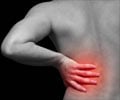A new study has shown that the antidepressant amitriptyline is just as effective as placebo in treating pain-predominant gastrointestinal disorders in children.
The antidepressant amitriptyline is just as effective as placebo in treating pain-predominant gastrointestinal disorders in children, a new study has said.
"Many pharmaceutical products are prescribed for off-label use in children due to the lack of clinical trials testing the efficacy of the drugs in children and adolescents. Therefore, the pediatric gastroenterologist frequently has to make treatment decisions without the evidence of how drugs work in children," said Dr. Miguel Saps, of Children's Memorial Hospital and lead author of the study."The high placebo effect we identified in this study suggests that further studies of the use of certain antidepressants in children with functional bowel disorders are needed. While several trials have demonstrated a beneficial effect of antidepressants, including amitriptyline, for the treatment of irritable bowel syndrome (IBS) in adults, more research is needed to determine how effective this drug is, if at all, in children," Dr. Saps added.
According to background information in an article on the study, published in the journal Gastroenterology, amitriptyline is used to treat symptoms of depression, but it is some times prescribed to children for pain relief from pain-predominant functional gastrointestinal disorders (FGIDs).
Pain-predominant FGIDs are among the most common causes for medical consultation in children. Such disorders include three common conditions: IBS, functional dyspepsia and functional abdominal pain.
For their study, the researchers designed a large prospective, multi-centre, randomised placebo-controlled trial in which children, ages eight to 17, with IBS, functional abdominal pain or functional dyspepsia were randomised to four weeks of placebo or amitriptyline.
Of the 83 children who completed the study, 63 percent of those who took amitriptyline reported feeling better, while 5 percent reported feeling worse.
Advertisement
Pain relief was excellent (7 percent), good (38 percent) in children on placebo and excellent (15 percent), good (35 percent) in children on amitriptyline.
Advertisement
According to them, there was no significant difference between amitriptyline and placebo after four weeks of treatment.
In children, the use of drugs to treat pain-predominant FGIDs is mostly empirical and based on adult data.
There have been only a few small, randomised clinical trials evaluating the efficacy of drugs for the treatment of pain-predominant FGIDs in children.
Source-ANI
RAS












